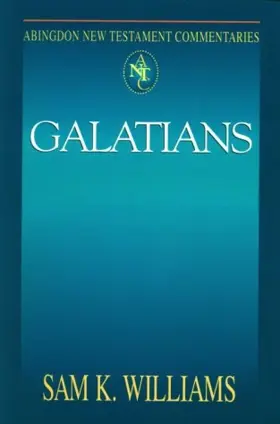

Galatians
in Abingdon New Testament Commentaries
Pages
176 pages
Publisher
Abingdon Press
Published
6/1/1997
ISBN-13
9780687057078
This informative and engaging commentary invites modern readers to "overhear" Paul's letter as if they were present in one of the Galatian house-churches where it was being read for the first time. By setting aside the theological baggage of the centuries that burdens many other interpretations of Galatians, Williams allows the Apostle's own provocative thought to be encountered freshly and appreciated anew in its own terms.
Reviews
This commentary appears in the Abingdon New Testament Commentaries series and is, therefore, according to series editor Victor Paul Furnish's foreword, "written with special interest to the needs and interests of theological students," but also intended to be useful to college students, pastors, and church leaders. An eighteen-page introduction is followed by 136 pages of commentary, a brief "select bibliography" (mostly of works since 1980), and a subject index. The bibliography includes annotations on eleven other commentaries on Galatians. The introduction notes reasons (both secular and religious) why Galatians is of interest now and briefly summarizes some of the circumstances surrounding the letter's origin, including its probable date (sometime between 1 Corinthians and Romans), the location of "Galatia" (the southern part of the Roman province, not ethnic Galatia), the general position of Paul's opponents (Jewish Christians seeking to protect the Gentile mission from Jewish criticism), and the letter's genre (Williams notes rhetorical types but declines to base interpretation on them). Here Williams also announces his intention to interpret Galatians without calling on either subsequent Christian thought or other NT writings, including Paul's other letters. It does not appear to this reviewer that this final promise is kept; but neither is it clear that it should have been. Within the commentary proper, the emphasis is on the development of Williams's interpretation, with occasional references to other possibilities and other interpreters. There are no footnotes. Among the commentary's conclusions is that "works of law" are "those practices of Torah . . .
[Full Review]
